Planetary Science
-
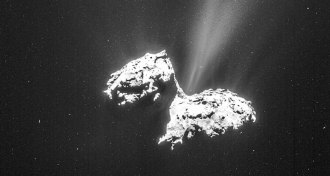 Planetary Science
Planetary ScienceOxygen on comet 67P might not be ancient after all
Molecular oxygen detected around comet 67P may not be a relic of the solar system’s birth. Instead, it may be generated by interactions of water, the solar wind and the comet’s surface.
-
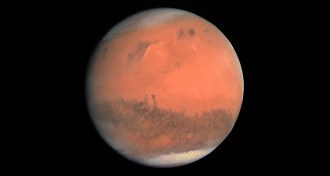 Planetary Science
Planetary ScienceMars may not have been born alongside the other rocky planets
Mars formed farther away from the sun than its present-day orbit, not near the other terrestrial planets, new research suggests.
-
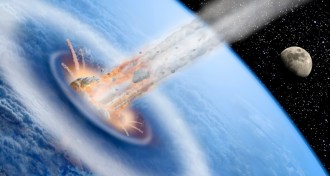 Planetary Science
Planetary ScienceHere’s how an asteroid impact would kill you
Most deaths caused by an asteroid impact would result from shock waves and winds generated from the blast, rather than effects such as earthquakes and tsunamis, new simulations show.
-
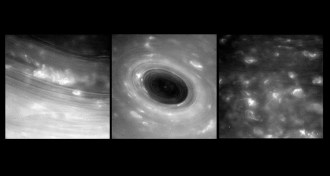 Planetary Science
Planetary ScienceCassini’s ring dive offers first close-up of Saturn’s cloud tops
Cassini has completed its first dive between Saturn and its rings. Along the way, it snapped stunning pics of the planet’s atmosphere.
-
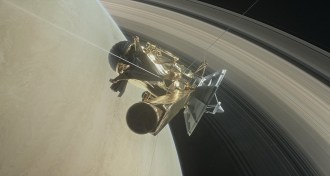 Planetary Science
Planetary ScienceIn ‘grand finale,’ Cassini spacecraft sets off on collision course with Saturn
The Cassini spacecraft will plunge into Saturn’s atmosphere and disintegrate on Sept. 15, but is slated to do some solid science before its demise.
-
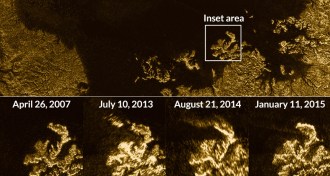 Planetary Science
Planetary ScienceNitrogen fizz fuels ‘magic island’ on Titan, simulation suggests
Nitrogen bubbles may be the source of the “magic island” on Saturn’s moon Titan.
-
 Planetary Science
Planetary ScienceBubbles may put mysterious fizz in Titan’s polar sea
Nitrogen bubbles may be the source of the “magic island” on Saturn’s moon Titan.
-
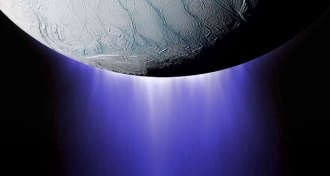 Planetary Science
Planetary ScienceFood for microbes found on Enceladus
The underground ocean of Saturn’s moon Enceladus harbors an abundance of molecular hydrogen, which could be an important source of food if microbial life exists there.
-
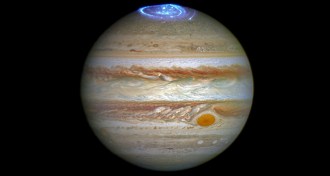 Planetary Science
Planetary ScienceJupiter’s Great Red Spot has company. Meet the Great Cold Spot
A previously unidentified dark mark on Jupiter has been dubbed the “Great Cold Spot” because of its temperature and resemblance to the planet’s Great Red Spot.
-
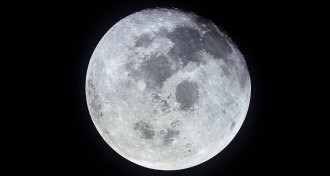 Planetary Science
Planetary ScienceCompeting ideas abound for how Earth got its moon
The moon may have formed from one giant impact or from about 20 small ones.
-
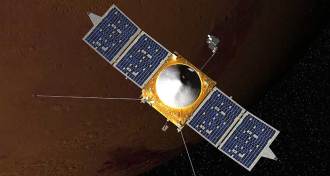 Planetary Science
Planetary ScienceExtreme gas loss dried out Mars, MAVEN data suggest
Over the planet’s history, the Martian atmosphere has lost 66 percent of its argon and a majority of its carbon dioxide, according to data from NASA’s MAVEN spacecraft.
-
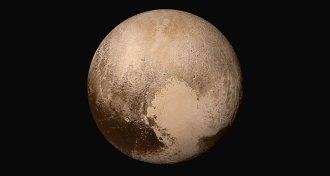 Planetary Science
Planetary ScienceIt’s time to redefine what qualifies as a planet, scientists propose
Astronomers can have their definition of a planet, but some planetary scientists plan to stick to the long-held meaning of the word.